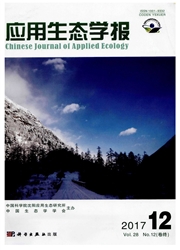

 中文摘要:
中文摘要:
多氯联苯(PCBs)是一类持久性有机污染物,生物危害性极大,流入环境后易被土壤颗粒吸附而长期蓄积在土壤中.运用生物技术修复PCBs污染土壤一直是国内外学者研究的热点.其中固定化微生物技术因其独特的优势而具备了较高的开发与应用价值.本文简要评述了当前PCBs污染土壤的主要修复技术,并通过分析固定化微生物技术的特点及其在有机污染土壤修复方面的研究进展,论述了运用该技术修复PCBs污染土壤的可行性以及所面临的关键科学问题.
 英文摘要:
英文摘要:
As one type of the persistent organic pollutants, polychlorinated biphenyls (PCBs) are tremendously harmful to organisms. These compounds are easily absorbed onto soil particles and able to accumulate in soil after they are released into the environment. Bioremediation technology of PCBs-contaminated soils has become a research hotspot in recent years, and immobilized microor- ganism technique has high developing and applying value because of its unique advantages in envi- ronmental remediation. This paper reviewed the chief remediation technology of PCBs-contaminated soils and then analyzed the characteristics of immobilized microorganism technique and its research progress in remediation of organic polluted soil. Finally, the feasibility and problems of this tech- nique in remediation of PCBs-contaminated soil were also discussed.
 同期刊论文项目
同期刊论文项目
 同项目期刊论文
同项目期刊论文
 期刊信息
期刊信息
